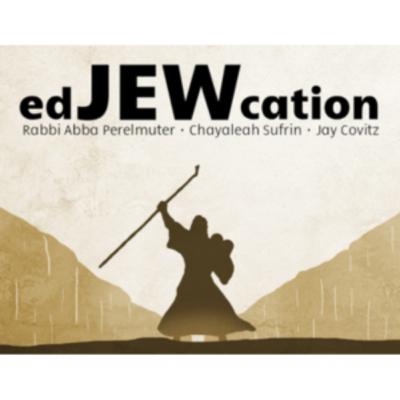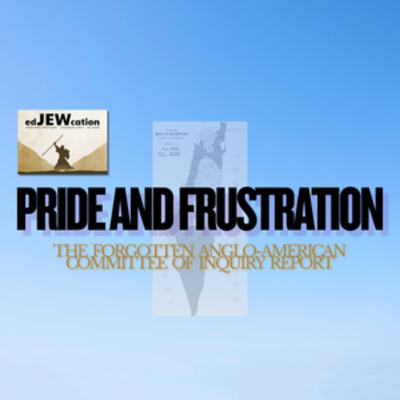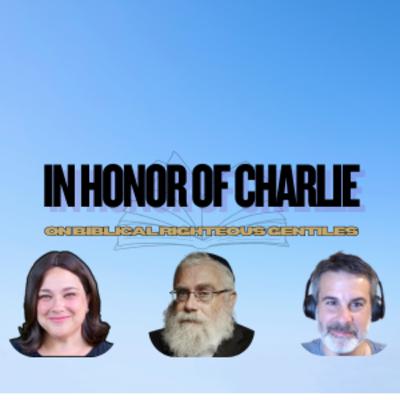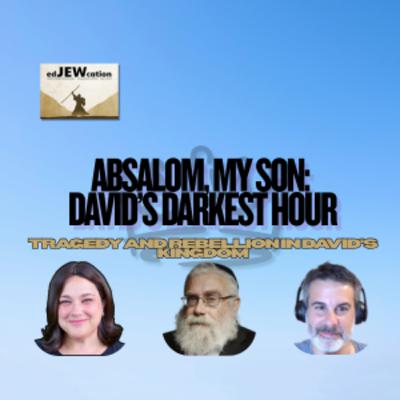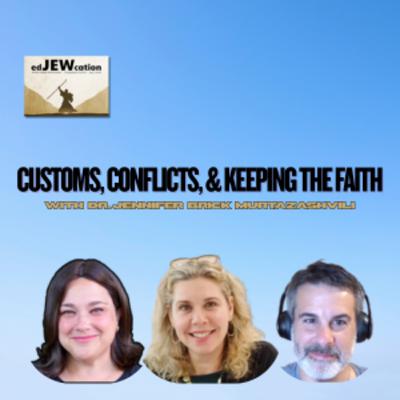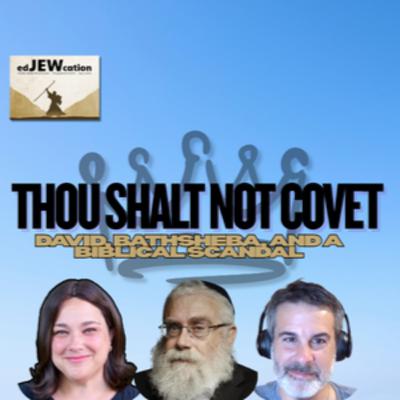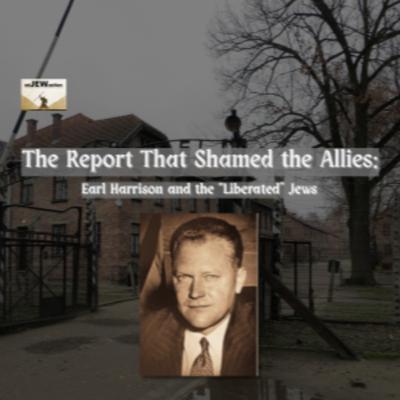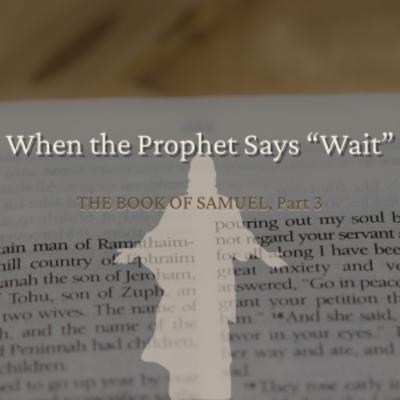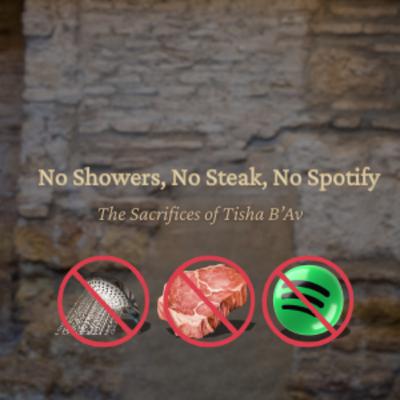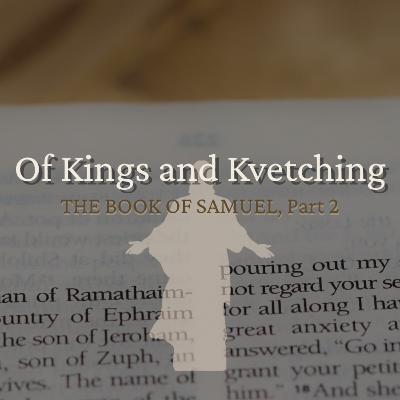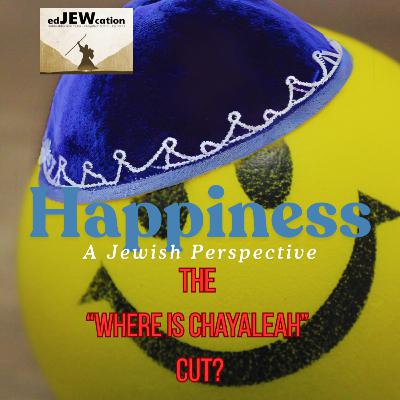Discover edJEWcation
edJEWcation

edJEWcation
Author: edJEWcation
Subscribed: 11Played: 463Subscribe
Share
© edJEWcation
Description
Your weekly dose of Jewish wit and wisdom. Each week Rabbi Abba Perelmuter, Chayaleah Sufrin, and Jay Covitz explore Jewish history, culture, and writings. Whether you're a relapsed Jew or an old pro there is something for us all to learn.
87 Episodes
Reverse
ALERT - Have you ever wanted to Zoom with the three of us? Or maybe even have one-on-one time? The world is now your oyster, as we have officially launched several subscription tiers, with our first Zoom taking place sometime after Thanksgiving.These will just be starting points, as we have a bunch of additional goodies planned, so be on the lookout (but we’ll also, of course, annoy you to make sure you’re aware).”On to the episode…Jay kicks things off with a pop quiz that (shockingly!) doesn’t totally embarrass ChayaLeah, the Balfour Declaration gets its due, and the laughter rolls from there. Joined by journalist and historian Oren Kessler, author of the award-winning Palestine 1936: The Great Revolt and the Roots of the Middle East Conflict, the trio time-travel back to the messy, fascinating years that set the stage for everything that followed in Israel’s story.If you’re interested in joining us, click hereAlong the way:🕵️♂️ We meet muftis, mayors, and media moguls from Mandate Palestine.📜 Discover how the first two-state idea appeared.💰 Learn why so many anti-Zionist Arab leaders secretly sold land to Jews.🗞️ Unpack how newspapers (and propaganda) shaped the conflict.🕰️ And of course, discuss how much Chruchill loved Jews.There’s banter, history, and a few “wait what?!” moments as Oren proves that real history can be just as wild as the memes about it.So pour some coffee (or something stronger) and join us for another edJEWcational ride through the past.
🚨 ALERT! Have you ever wanted to Zoom with the three of us? Or maybe even have some one-on-one time? Well, the world is now your oyster because we’ve officially launched several subscription tiers, with our first Zoom taking place sometime after Thanksgiving!These will just be the starting points (we have a lot of goodies cooking), so keep your eyes peeled — and don’t worry, we’ll also personally annoy you to make sure you don’t miss out.If you’re interested in joining us, click hereThe edJEWcation trio is back together and possibly breaking cosmic laws by existing in the same place at the same time. After surviving time zone changes, jet lag, and Jay’s daylight-savings complaints, we dive headfirst into the wild, wise, and occasionally weird world of First Kings.This episode has it all:📖 David can’t get warm, so things get a little… biblically awkward.👶 Solomon inherits the throne at age 12 (no pressure, kid).⚖️ The OG “split the baby” moment proving once again that ancient Israel didn’t need Maury (but we date ourselves).💍 700 wives, 300 concubines, and one very patient temple-permit department.🦁 Solomon’s throne puts the Iron Throne to shame.💰 And we learn why prosperity might be the hardest test of all.ChayaLeah reflects on modern boundaries (thank you, Mel Robbins), the Rabbi reminds us that Jews are tribal, not racial, and Jay manages to squeeze in Chabad.org and a Baruch joke.It’s history, humor, and heresy (lightly toasted), exactly the way we like it.
This week, Jay and ChayaLeah sit down with Professor Jeffrey Veidlinger of the University of Michigan — historian, author of In the Midst of Civilized Europe, and director of the Raoul Wallenberg Institute — for a hauntingly relevant conversation about the pogroms that swept through Ukraine between 1918 and 1921.They explore how ordinary neighbors became murderers, why humiliation often cuts deeper than death, and how centuries of trauma ripple through Jewish identity to this day. From the streets of the shtetl to the chaos of modern social media, the conversation moves between past and present — revealing unsettling parallels between old hatreds and new headlines.It’s a deeply human, deeply Jewish episode that asks: what does it mean to live — and rebuild — in the midst of civilized Europe?
This week on edJEWcation, we go full wandering-Jew with an episode that starts in the December Project (a book about preparing for death) and somehow winds its way through Hemingway, Dostoevsky, Hasidic storytelling, Masada, Jonathan Sacks, the Nakba, Judge Caprio, and why your neighbor’s sukkah is basically Jewish Home Depot cosplay.In between, we wrestle with:Why fiction can sometimes tell the truest storiesHow Jewish stubbornness, sacred texts, and a portable identity kept us alive when every other ancient culture disappearedWhy Sukkot is the Babe Ruth of underrated mitzvot (and why American Jews still don’t show up)The awkward Jewish instinct to love every Jew except the ones on our own blockIsrael as hammer vs. nail…and why too many Jews still prefer the nailJudge Caprio, Rhode Island’s saint of traffic court, and why mercy belongs on the bench and in the Beit MidrashIt’s history, politics, theology, pop culture, and K-pop (yes, really) all shaken into one of the most edJEWcation episodes yet.
This week on edJEWcation, we sit down with William Mehrvarz, whose story takes us from the streets of Tehran to the Shabbat tables of New York. Born into a devout Shia Muslim family in Iran, William’s path veered when a camp roommate handed him a Bible written in Farsi. What followed was years of secret study, political upheaval, and dangerous choices, culminating in his escape from Iran, asylum in America, and ultimately, conversion to Judaism.We talk with William about:The contrasts between Fridays in Tehran, filled with hate-filled chants vs. Shabbats filled with song and restHow his first marriage exposed his hidden faith and nearly cost him everythingThe loneliness and beauty of his conversion journeyWhat it means to be proudly both Persian and JewishAnd why he believes America may be living in a “golden age” for Jews outside of IsraelIt’s a story of risk, resilience, and renewal — a reminder of how one person’s search for truth can transform an entire life.
In this episode, Jay contemplates changing his Hebrew name, which leads ChayaLeah and the Rabbi into a conversation about identity, the mystical energy of names, and how prayer has become the least-popular Jewish pastime (sorry, Pew survey). Along the way, we talk about why Jews often find davening uninspiring, how Hasidic meditation works (hint: it’s not sitting cross-legged with Sam Harris), and why prayer is less about Amazon-delivery miracles and more about dialogue. We also wrestle with forgiveness, when an apology is genuine, when it’s demanded, and what to do if the other party won’t accept it. Plus: barbecue feuds in Texas, Taylor Swift at the stadium, and the challenge of marking October 7 two years later.It’s an episode about reconnecting with G-d, with each other, and with what it really means to be Jewish when the world feels like it’s shaking.
As the High Holidays come into focus, we take a step back to reflect on prayer, community, and the meaning behind the words we say in shul. From the powerful sound of the shofar to the quiet struggles with Hebrew versus English prayer, we share honest conversations about connection, detachment, and what it really means to stand before G-d. Along the way, we discuss Tashlich by the lagoon, the challenge of keeping students engaged, the rise of alienation in modern life, and why screens can never replace genuine community. We even manage to wander into Larry Bird, Magic Johnson, and the golden age of the Celtics. At its heart, this episode is about finding inspiration where you least expect it and remembering why the holidays matter.Links:Psalm 27What is Tashlich
This week on edJEWcation, we dive into a nearly forgotten chapter of Jewish history: the Anglo-American Committee of Inquiry of 1946. Born out of the Harrison Report (which we discussed previously) and Truman’s pressure to open the gates of Palestine, this joint British-American commission investigated the plight of Holocaust survivors, Arab opposition, and the realities on the ground in Mandatory Palestine.Jay and ChayaLeah unpack the committee’s findings, calls for 100,000 Jewish visas, the acknowledgment that no other country would take in Jewish refugees, and candid observations on Jewish resilience, Arab demands, and British reluctance. Along the way, we uncover unexpected details, from malaria maps that shaped partition lines to the striking language describing the Jewish mix of “pride and frustration.”Why did the British ignore their own commission’s recommendations? How did Zionist advances in health and education widen the gulf between Jews and Arabs? And why does this report, once seen as pivotal, barely register in collective memory?It’s a story of hope, betrayal, and the ongoing tension between Jewish pride and Jewish frustration, a snapshot of 1946 that still echoes today.
In this week’s episode, we pause from our usual lighthearted approach to reflect on a tragedy shaking the Jewish and wider American communities: the assassination of Charlie Kirk. However one viewed his politics, Charlie was a forceful supporter of Israel and a vocal opponent of antisemitism, unafraid to confront hostile audiences on college campuses and beyond. His final, unfinished work on the importance of Shabbat reminds us that wisdom can sometimes come from unexpected voices.In his honor, we turn to the Bible to explore the righteous non-Jews who stood alongside the Jewish people in moments of need…figures like Eliezer, Jethro, Pharaoh’s daughter, Rahab, Ruth, and Cyrus the Great. Their courage, loyalty, and moral clarity remind us that righteousness is not bound by heritage and that even in the darkest times, allies can emerge to protect what is sacred.This is a sobering conversation about the cost of division, the fragility of moral courage, and the enduring hope that others will rise to stand with the Jewish people.
This week on edJEWcation, the saga of King David gets darker, messier, and more painfully human. Forget the Sunday-school highlight reel, we’re diving into the tragedy of Amnon, Tamar, and Absalom.It’s a story of lust, betrayal, revenge, and rebellion: a prince consumed by desire, a sister left broken and silenced, a brother plotting justice with the patience of a viper, and a father-king paralyzed between love and duty. By the time Absalom’s flowing hair gets tangled in a tree, the whole House of David is tangled in grief, power struggles, and unanswered questions.We break down:The eerie echoes of Jacob’s family drama in David’s palaceWhy David’s own sins with Bathsheba haunt every chapter that followsAbsalom’s charisma, ambition, and ultimate downfallThe raw pain of David’s cry: “My son, Absalom, my son, my son…”How these ancient family fractures mirror today’s power, politics, and inconvenient loyaltiesPlus, in true edJEWcation fashion, we wander from burned hot dogs to Hunter Biden to the IRA, proving once again that Torah and modern life are never as far apart as they seem.
This week on edJEWcation, Jay and ChayaLeah sit down with Dr. Jennifer Brick Murtazashvili, professor at the University of Pittsburgh and head of the Center for Governance and Markets, for a conversation that bounces from Uzbekistan to Squirrel Hill, from Hasidic wedding songs to Taliban tribal law.We explore:Why minhag Yisroel Torah hi (“Jewish custom is Torah”) resonates far beyond Jewish life.How customs in Afghanistan and Central Asia parallel Hasidic practices.The heartbreak of Tree of Life, the shock of October 7th, and the question Jews whisper now: do we belong here?Why making Judaism political is dangerous—and how joy and tradition may be the antidote.What Ukraine, Russia, and bomb shelters in Israel reveal about resilience.Plus: the great baby shower debate, whether Judaism is Western, Eastern, or something bigger, and why havruta (learning in pairs) might just save the next generation from their phones.It’s a journey through customs, community, and what keeps us Jewish—even when the world feels like it’s unraveling.
This week on edJEWcation, we dive into one of the most famous and scandalous stories in the entire Bible: King David, Bathsheba, and Uriah. Was David guilty of adultery, deception, and murder? Or was he fulfilling a divine destiny with Bathsheba? The Rabbi breaks down the clash between text, commentary, and morality, while Jay and ChayaLeah wrestle with the very human side of the story.We cover:Why this episode of David’s life would never make it into a fourth-grade Hebrew school curriculumWhether power corrupted Israel’s greatest king or if he was simply following the “letter of the law”Why Uriah the Hittite might be the unsung hero of the storyHow this cautionary tale shaped Solomon’s birth and the future of the Davidic lineAnd what it means when even the Bible’s greatest figures can fail so spectacularlyIt’s love, lust, power, politics—and a reminder that nobody, not even a king, is above God’s law.
This week on edJEWcation, we’ve doubled the rabbis and turned up the volume. ChayaLeah invites her friend Rabbi Daniel Levine to go head-to-head (in the nicest, most Jewishly passive-aggressive way possible) with her father. The topic? What’s gone wrong with Jewish education and how to fix it, without losing our kids to boredom, bagels-only Judaism, or anti-Israel campus mobs.We cover:Why Hebrew school might be the Blockbuster Video of Jewish educationRituals vs. ideas: Which one actually keeps Judaism alive?The “mimetic tradition” and why your bubbe’s kitchen might have been a better classroom than Hebrew schoolHow Israel got separated from Judaism in some circles and why that makes zero senseWhether the “why” or the “how” matters more in bringing people back to Jewish lifePlus: the pepperoni pizza Passover story you didn’t know you needed, why motion beats emotion, and how chicken soup can do more for Jewish continuity than a thousand PowerPoints.Links to Rabbi Daniel’s content:JLife with DanielRabbi Daniel Levine - YouTube
This week on edJEWcation, Jay and ChayaLeah kick the Rabbi off the mic and dive deep into a little-known but wildly important post-Holocaust document: the Harrison Report. After hearing disturbing rumors that Jewish survivors were being kept behind barbed wire alongside former Nazis (yes, really), President Truman sent Earl Harrison: lawyer, non-Jew, and moral compass, to investigate.What he found was horrifying: Jews still wearing concentration camp uniforms, starving on moldy bread, living next to their former tormentors. And no one—not the Americans, not the Britshad any idea what to do with them.We break down:How the Allies “liberated” Jews into open-air prisonsWhy Truman got mad and Eisenhower actually did somethingThe British refusal to let Jews into Palestine—even after the HolocaustThe moral cowardice of world leaders who knew better and did worseThe astounding resilience of Jews in the DP camps (spoiler: 50,000 babies born in the American zone alone)Plus: family stories, the politics of guilt, and why social media would have hated Earl Harrison.This is one of those stories that should be common knowledge but isn't. So we’re fixing that.Rate, subscribe, and send us your five-star outrage. Or don’t. But we’ll judge you if you don’t.Links:The final Harrison ReportLetter between Elie Wiesel and the Rebbe about fatherhood
This week on edJEWcation, we return to the Book of Samueland things are getting biblical in the worst way. Saul’s kingship is off to a promising start: he wins battles, his son Jonathan shows promise, and even the livestock is plentiful. What could go wrong?Everything.We dive into Saul’s fateful mistakes impatience, misplaced piety, and a tragic inability to just do what he’s told. Rabbi breaks down the spiritual calculus of fasting before battle, the moral complexity of annihilating Amalek, and why “obedience is better than sacrifice” remains one of the Torah’s hardest pills to swallow (kosher or not).We also cover:Why lighting Shabbos candles in Kauai feels like being the last Jew on EarthIf you mess up twice, God’s out of second chancesRashi's wild theory about Amalekite animal shapeshiftersThe tragic arc of Saul: from lost donkeys to lost destinyAnd yes… Megan Thee Stallion may or may not be showing up in the next chapterPlus, we go full sociological as we talk mimetic desire, kosher coffee cups, and why we’re all just trying to be the cool girl in high school except with halacha.Tune in for the drama, stay for the Torah, and remember: sometimes the real Amalek is the self-doubt we picked up on Instagram.
This week on edJEWcation, we’re going full Nine Days mode, which means no meat, no music, no manicures, and absolutely no Martha Stewart-level Shabbat table décor.ChayaLeah and Jay kick things off with a discussion on Bob Dylan’s Orthodox daughter, Paul McCartney’s politics (or lack thereof), and why Regina Spektor just became the patron saint of Jewish pride at concerts. But don’t worry it’s not just a classic edJEWcation tangent-fest (well, it is, but on purpose). Because all this music talk was really just a smooth setup for the Nine Days of Av: the annual Jewish crash course in grief, restraint, and self-discipline.We break down the very real (and very weird) laws of the Nine Days: no laundry, no showers, no wine, no weddings, and definitely no binge-watching Welcome Back, Kotter. We explore what these restrictions are trying to teach us, and why Judaism demands personal sacrifice if we’re serious about rebuilding what was lost.Then we zoom out: what does it mean to truly mourn a 2,000-year-old temple? Why is Judaism more than just theoretical ideals? And can giving up Instagram for nine days actually make you a better Jew or at least a more present human being?Highlights include:🧼 The halachic logic behind skipping showers (it’s grosser than you think)📵 Why social media might be worse than smoking and what that means for our kids🕯️ How one Shabbat dinner (without screens) could be the mental health revolution America’s been waiting for🎧 And yes… Jewish a cappella is allowed. But should it be?Whether you're observing the Nine Days or just looking to unplug and reconnect, this episode is a call to swap comfort for meaning and to consider that maybe, just maybe, the messiah won’t arrive until we’re all a little more willing to go without Spotify.
In this week’s edJEWcation bonus episode, Jay ditches Montreal, loses his tefillin (almost), and gains a crash course in the most Hamish transit option known to mankind: Hyman’s bus. We then pivot—seamlessly, obviously—from gefilte-fish-scented buses to one of the most dramatic political moments in Tanakh: the Israelites demanding a king.Why did God get so cranky about the request for a king when He literally told them they’d have one? What makes a king kosher? And does asking nicely actually matter to God—or is He just like the rest of us with a fragile ego and a long memory?We unpack the tragedy of Saul, the responsibilities of a Jewish monarch, and the eternal struggle between libertarian fantasy and Torah reality. Also: the Pope, the president of Iran, Tucker Carlson’s missing follow-up questions, and the underrated importance of being short and handsome in ancient Israel.
This week on edJEWcation, we dive into the opening chapters of the Book of Samuel—because nothing says Jewish tradition like a barren woman, a holy ark, and a plague of hemorrhoids.Before we get biblical, we briefly address our deep concern over Brad Pitt's Zionism (verdict: our gut says yes) and tackle a listener question about antisemitism. Rabbi’s answer? Retreat is never the answer. Jewish pride is. And if you're not sure what you're proud of—educate yourself.Then we jump into the emotional story of Hannah, her desperate prayer, and the miraculous birth of Samuel. We unpack why her story is read on Rosh Hashanah, what it teaches us about how to pray, and how it reshapes our relationship with God (spoiler: it’s not transactional, and He doesn’t want your golden mouse).We follow Samuel’s unlikely rise as a prophet, his tragic start under Eli’s failing leadership, and the catastrophic decision to bring the Ark into battle. What happens next? The Philistines steal it—and in return, they get divine payback in the most uncomfortable way imaginable.Other highlights include:The Torah’s recurring theme of infertility and what it teaches us about divine purposeThe difference between monotheistic prayer and pagan appeasementWhy being a proud Jew matters more than a PR campaignThe theological implications of airport pickups at 1:15amNext week, we’ll crown a king and ask: did Judaism really need a monarchy, or were we doing just fine with prophets and judges?
This week on edJEWcation, ChayaLeah returns from an impromptu war-zone detour with 40 Birthright students, a cruise ship, and a newfound appreciation for bomb shelters. What started as a sunny student trip to Israel turned into a harrowing 12-day ordeal as Iran launched a massive missile attack, Ben-Gurion shut down, and Birthright scrambled to evacuate thousands.We unpack her experience taking shelter from missiles in Jerusalem, fleeing to Cyprus by boat, partying awkwardly at sea, and witnessing the awe-inspiring kindness of Chabad communities in Cyprus, Germany, and beyond. Along the way, we discuss Psalms, summer camp, and the Rebbe's unapologetic views on peace, war, and Israeli security.Also in this episode:🕍 Why the Rebbe said “not one inch”🚢 The kosher cruise ship evacuation no one saw coming🍝 How Chabad fed 600 stranded Jews with potatoes, joy, and extension cords🕊️ A hot take on anti-war platitudes from the Pope🔥 Did the war feel… messianic? And what does that even mean?🏕️ Plus, a plug for Jewish summer camps, homesick kids, and the power of watermelon by the lakeIf you’ve ever wondered what it means to be part of the Jewish people—or how to explain to your kids why the IDF deserves a L’Chaim—this one’s for you.
With ChayaLeah on her reverse Exodus from Israel and an interview that fell through this week, we are re-running our episode about the Jewish perspective on happiness from a few months ago, because we couldn't all use that right now?However, this one comes with an extended director's cut that includes Jay's commentary on current events in Israel.What more could you ask for at the moment?Enjoy and see you all next week.




